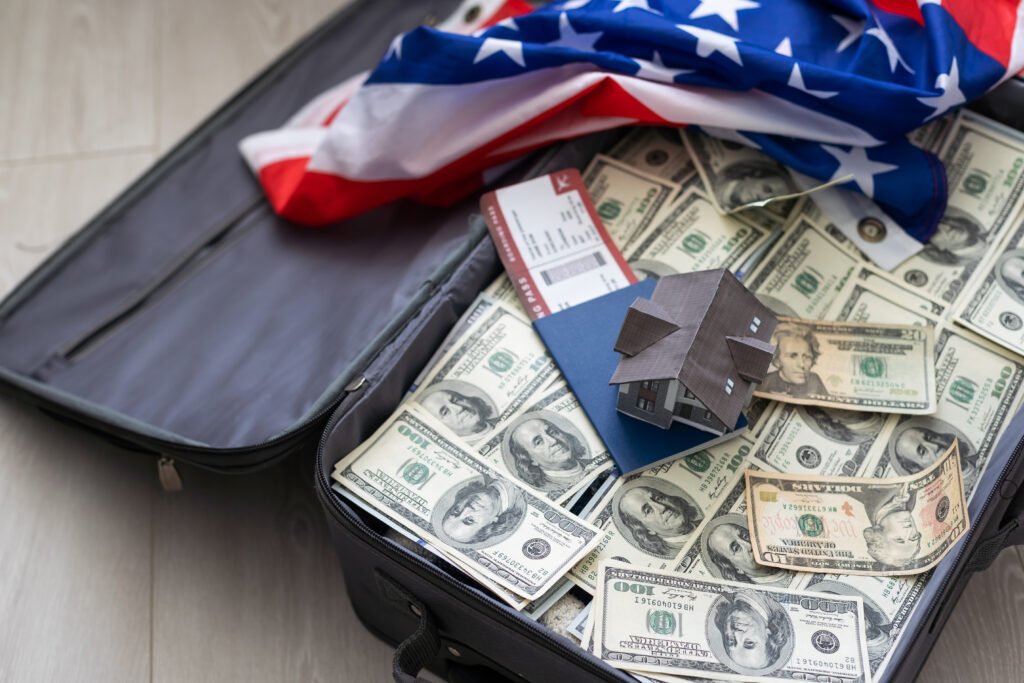It’s official. The U.S. just rolled out a new rule that could make visiting a lot more expensive—for some people.
On August 5, the U.S. State Department published a temporary rule in the Federal Register. It’s called the Visa Bond Pilot Program, and it’s raising eyebrows (and a few credit limits).
What’s This Bond All About?
Starting August 20, travelers from certain countries may need to pay a refundable bond of $5,000, $10,000, or $15,000 USD to receive a tourist or business visa.
That’s right—before you even book a flight, you might be asked to front a five-figure security deposit.
According to the official document:
“Consular officers may require covered nonimmigrant visa applicants to post a bond of up to $15,000 as a condition of visa issuance, as determined by the consular officers.”
This decision is final. You can’t appeal. However, if you exit the U.S. within the allowed time, you’ll get the bond back in full.
Who Has to Pay?
For now, the U.S. has not released a list of specific countries. Still, the rule lays out three red flags:
- A high visa overstay rate
- Poor identity verification systems
- Citizenship-for-sale programs with no residency requirements
Because of that, media outlets are speculating that Haiti, Venezuela, Nigeria, Russia, and India are likely to be included.
Mexico is not on the list—at least not yet.
Why Baja Should Care
Even though Mexican nationals are not currently affected, the ripple effect across Baja is real.
First, many people living in Tijuana work in the U.S.—often without a legal visa or citizenship. If they ever lose their current documentation or try to re-enter legally, this new rule could shut the door.
Second, Baja is a gateway. Tourists from other countries often land in Tijuana or Mexicali before heading north. If they’re from a flagged country, they may cancel the trip altogether.
As a result, fewer visitors could mean fewer tacos ordered, fewer tours booked, and less money flowing through the local economy.
How Does It Work?
If you’re selected for the bond, you’ll pay through Pay.gov, a U.S. government platform. The funds are held in a Treasury account until your departure from the country.
Leave on time? You’ll get your full deposit back. Overstay your welcome? Say goodbye to your money.
Who’s Exempt?
Thankfully, not everyone has to pay. The rule includes automatic exemptions for:
- Diplomats
- Government-sponsored exchange students
- Travelers with humanitarian needs
Additionally, consular officers may waive the bond in special cases—but don’t count on it.
To Our American Readers
Let’s not forget: this rule makes your U.S. citizenship more valuable than ever.
While others may need to hand over thousands just to visit, you can still cross the border with ease—no bonds, no fees, no headaches.
At the same time, this rule could make Baja quieter. Tourists from some regions might avoid traveling here, knowing they won’t be able to cross into the U.S. from Tijuana or Mexicali.
Final Word From GGNorth
This visa bond isn’t just about money. It’s about access, trust, and the ever-growing wall of red tape.
Although Mexico isn’t affected—for now—cross-border communities like Baja could still take the hit.
So, if you’ve got a U.S. passport, enjoy the freedom it brings. For many others, that freedom now comes with a pretty steep price tag.


